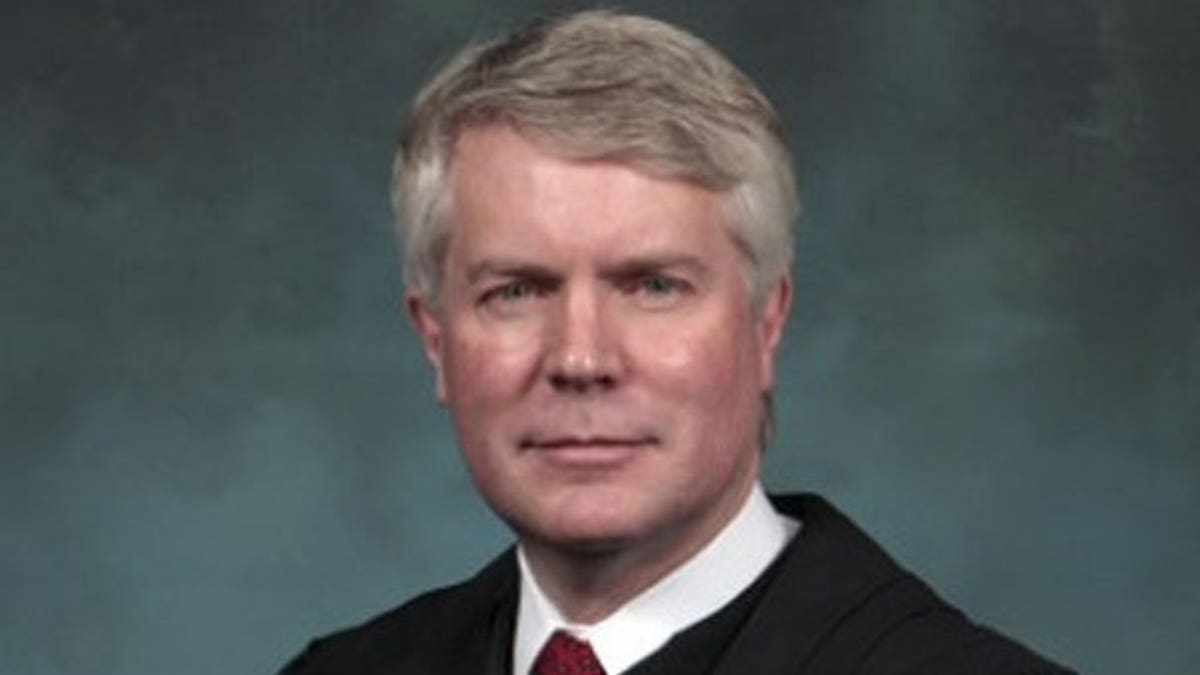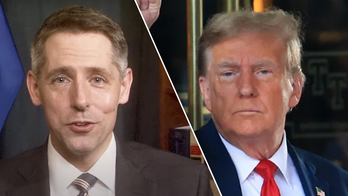
Judge David Hamilton
Senate Majority Leader Harry Reid stands ready to restart a partisan feud over the judicial nomination of David Hamilton -- President Obama's pick to sit on the U.S. 7th Circuit Court of Appeals in Chicago.
Reid, D-Nev., has said he hopes for a vote on Hamilton by Veteran's Day next week, saying on the Senate floor Wednesday, "We're going to do judge David Hamilton, 7th Circuit. He's been waiting since April."
Obama chose Hamilton, a U.S. district judge in Indiana, as his first judicial nomination in March. The White House has characterized Hamilton as a moderate pick whose judicial record would temper criticism from conservative and liberal extremists -- bringing an end to the political confirmation wars that have long accompanied such judicial nominations.
But Republican opposition to Hamilton's nomination has emerged over rulings in a host of cases -- from barring Christian prayer in the Indiana Legislature to blocking enforcement of certain state abortion statutes.
In a letter penned Nov. 3 to his GOP colleagues, Republican Sen. Jeff Sessions of Alabama blasted Hamilton for using his position to "drive a political agenda." Hamilton stated in a 2003 speech that the role of a judge includes "writing footnotes to the Constitution" and believes "empathy" should influence a judge's decision making, Sessions wrote.
Not so, say Hamilton's supporters, including prominent conservative lawyer Geoffrey Slaughter, a partner at Taft Stettinius and Hollister LLP in Indianapolis, and Republican Sen. Richard Lugar of Indiana.
"I have a lot of respect for him as a judge," Slaughter said in an interview with FoxNews.com. "He's a tough questioner -- an inquisitor of all sides. And he's a gentleman of the highest character."
From 1989 to 1991, Hamilton, a graduate of Yale Law School, served as counsel to then-Indiana Gov. Evan Bayh. Hamilton, the nephew of former Democratic Rep. Lee Hamilton, was named to the bench by President Bill Clinton in 1994.
Since that time, Hamilton has received attention for a handful of controversial rulings in the state, including a 2005 decision to prohibit the Indiana state Legislature from beginning its sessions with Christian prayers. The ruling was later dismissed by a panel of the 7th Circuit after an appeal, which found that the individuals named in the suit had no case because they were not harmed by the prayers.
In 2008, Hamilton ruled to strike down a law requiring sex offenders to release detailed, personal information, including e-mail addresses and Internet screen names, and to submit to routine search warrants.
The district judge, who deemed the law unconstitutional, wrote at the time, "The prospect of searches 'at any time' without a search warrant, without probable cause and without even reasonable suspicion of wrongdoing, would dramatically impair the privacy these plaintiffs have the right to enjoy in their own homes under the Fourth Amendment."
Hamilton also ruled in 2003 to strike down part of an Indiana law compelling abortion clinics to provide women with information about alternatives to abortion -- a decision that was later overturned.
"His judicial philosophy is to the left of mine, there's no doubt about that, but his decisions are not so far outside of the mainstream as to be disqualified," said Slaughter, who appeared before Hamilton as a litigant in a 1995 case in which Slaughter was defending the state's abortion statutes.
"In my own view, frankly, I think he got it wrong," Slaughter said of the 1995 case, in which Hamilton ruled to block the enforcement of a state informed consent law. "He's left of center -- though within the 30-yard lines."
In defense of his 2003 remarks on "footnotes" to the U.S. constitution, Hamilton told the Senate Judiciary Committee in April that "the concept of the footnote implies what we're trying to do is not something new, but work out the details of how those principles [in the Constitution] apply to new situations." He cited the racial desegregation of schools in the 1960s to drive home his point.
But Sessions and other Republicans say Hamilton is nothing less than a liberal jurist whose rulings in at least six cases demonstrate that his "activism has not been restricted to his speeches."
"This is not the type of service that should be rewarded with a promotion. This is one of those extraordinary circumstances where the president should be informed that his nominee is not qualified," Sessions wrote in his letter.
Fox News' Shannon Bream contributed to this report.




